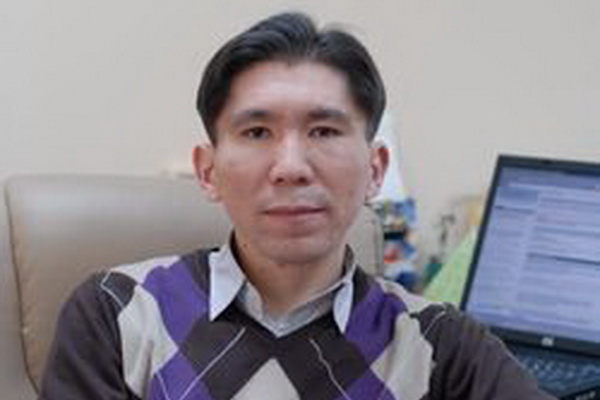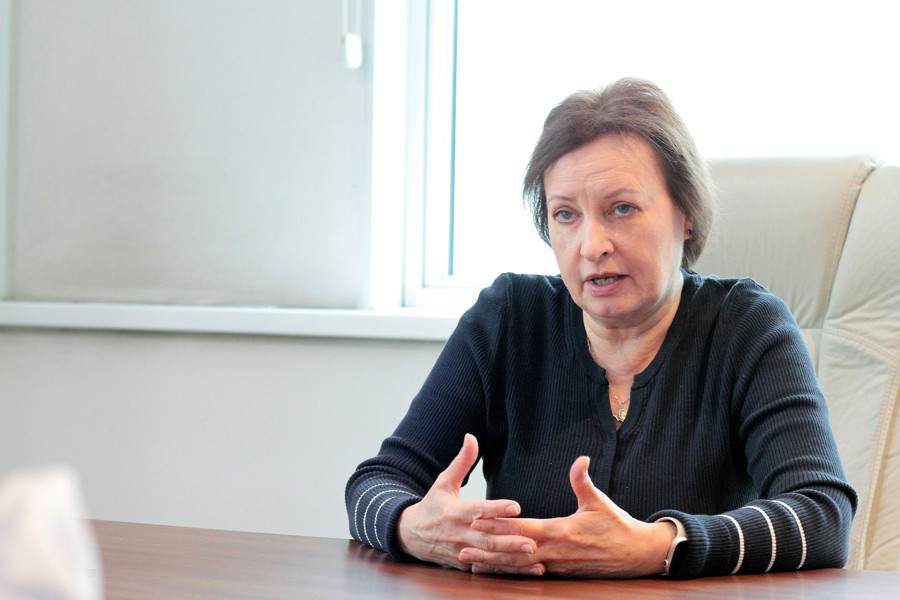Political analyst Dosym SATPAYEV:
THERE WILL BE NO EXTENSIVE GOVERNMENT RESHUFFLE. THE CABINET, IN FACT MADE UP OF ITS LAST YEAR’S PERSONNEL, WILL HAVE TO TACKLE TASKS IN THE FINANCIAL AND ECONOMIC SECTOR IN THE 1ST INSTANCE

The snap presidential election was held in Kazakhstan in which incumbent President Nursultan Nazarbayev won a victory. Political analyst Dosym SATPAYEV told in an interview with Interfax-Kazakhstan what awaits post-election Kazakhstan, about the government resignation, possible snap parliamentary election.
- The snap presidential election was held; Nursultan Nazarbayev renewed presidential powers. What awaits Kazakhstan?
If we take statements made already by the president into consideration then he pointed out the short-term activities he would like to pursue. In particular, he already said that after the election he would set up an ad hoc commission made up of five groups and each of them would deal with a separate aspect of institutional reform. Yet in March at the Nur Otan party congress the president proposed a five-institutional reform formula.
After the election this process is likely to kick off. It is about the necessity of forming a more qualitative and professional bureaucratic machine in other words it is about new administrative reform. Though as far as I recall there have been quite a lot of reforms of this kind. In addition, institutional reform is about the industrialization of Kazakhstan’s economy in order to diversify it and get free from the dependency of mineral resources. The necessity for consolidating Kazakhstan’s society was also mentioned following the [president’s] Eternal Country idea and, as it was stated, for creating Kazakhstan’s national identity based on civic-mindedness but not on religious and ethnic origin.
- After the inauguration of the president the cabinet should resign. Will it be reshuffled in one way or another?
There is an important issue here: namely what specific staff reshuffling will follow. Although I reckon that after the government reshuffle held last year, which was major enough and very complex because five new mega-ministries were formed up, it would make no sense to reshuffle again the cabinet on the same scale in the face of this year’s economic and financial problems in Kazakhstan - that is the same as changing the Capitan of the ship during a storm. It seems to me, it would not be correct to do so and a reshuffle if any would involve mainly staff. Probably some staff in the government would be reshuffled but again there is no reason to reshape the whole format of the recently created government even from the management point of view. So the new staff reshuffling is possible but the major cabinet reshuffling seems senseless to me. So the cabinet made up if its last year’s personnel will have to tackle in the first instance both previously given tasks and new tasks that will arise imminently in the financial and economic sector this year.
- Earlier many experts talked about the possible [tenge] devaluation after the election. The election took place should one expect the devaluation soon?
As for the [tenge] devaluation so many people, including those who represent international, U.S., Russian financial institutions, have already said that apparently Kazakhstan should devalue its currency.
But I think that after the election nobody will carry out the devaluation. There are several key points in this aspect and one of them is July 6 – the president’s birthday, as well as the May Holidays and so on. No one will carry out the devaluation after the [president’s] inauguration shortly before his birthday. This issue will be definitely postponed until this autumn. In my view, the National Bank and the government already clearly stated that any devaluation would be gradual until the end of this year.
Though a sharp devaluation is possible like one of the options as some experts say but anyway the gradual devaluation formula is more likely. Moreover now it looks like the discussion of the possibility of holding a snap parliamentary election has already begun. If a decision to hold the snap parliamentary election is adopted then understandably the issue of the devaluation is to be again postponed to a later date because nobody carries out devaluation in the run-up to an election or during an election campaign.
Here are a lot of political nuances indeed. I would like to emphasize again that the biggest challenge for the authorities is not the high devaluation expectations since last year, no. The biggest challenge for the authorities is that the February 2014 devaluation resulted in the devaluation of trust on the part of the most of the population and business community in general with respect to what the authorities do and speak. This is the biggest challenge. The devaluation of trust is most keenly felt in Kazakhstan and I think it will last still very long. Representatives of our authorities really need to fight this devaluation because with its availability whatever the government does, whatever our civil servants say many [residents] in Kazakhstan will imminently perceive all that the other way round. In fact, the devaluation of trust by and large reduces public opinion and public sentiments management. I think this is the key challenge because the national currency devaluation, in theory, must be rather an economic mechanism but in Kazakhstan’s circumstances it already acquires a political connotation. The devaluations issue was closely linked to the question about when the elections – presidential and parliamentary – would happen.
- Is the snap parliamentary election possible this year?
In Kazakhstan’s circumstances the election itself is a process quite resembling political technology. It is possible to hold the parliamentary election in one month’s time if you like - just the head of state will issue a clear-cut instruction and the whole government machine will start working on that.
In my view, the deadline itself for this election is not important, let it happen next year or even in 2017, it is not so important either whether the election will be ahead of schedule or pushed back to a later date.
I am personally alarmed about the qualitative make-up of the post-election parliament. The principal question to be on the agenda now is whether parliament will be renewed, whether new partisan players will show up or a new party reform be carried out so that old players, present there now, become stronger, more competitive and established.
The parliament’s fundamental problem is that this branch of power is weak. And it is weak because, among other things, not very strong, not well-established, and en masse artificial party formations sit in parliament. Coming back to the issue what to do after the election, in my view, now it is necessary to strengthen parliament with strong political parties. It is necessary to carry out the party reform for that and whenever possible new party players need to take part in the next parliamentary election for this purpose. Time and resources are needed for doing so but I am not sure whether the authorities are ready for that. If the parliamentary election takes place with the same combination of participants and the same make-up will sit again in parliament along with the so-called couch parties, which, generally speaking, exert no influence on public opinion, then all this would be in vain. We would keep going over a sort of the same ground again.
- Thank you for the interview!
April, 2015
© 2026 Interfax-Kazakhstan news agency
Copying and use of these materials without reference to the source is prohibited
Archive





